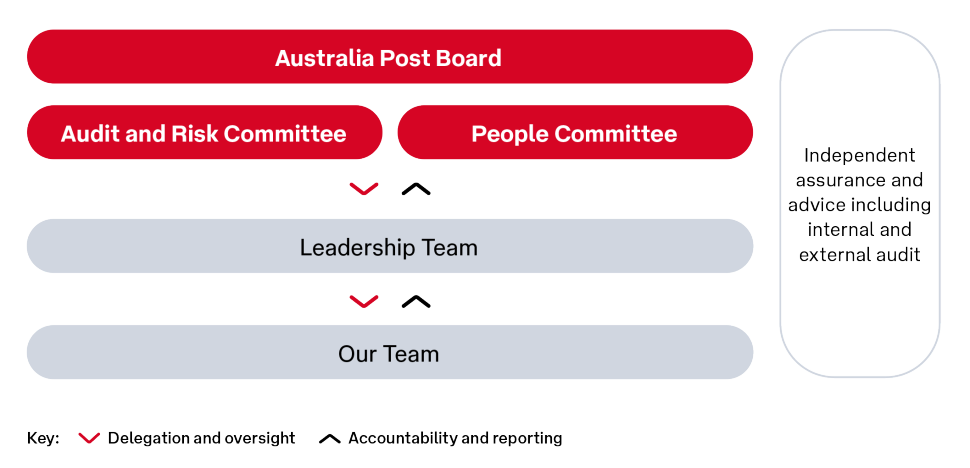Our approach to Corporate Governance
Our approach to Corporate Governance
As a Government Business Enterprise, Australia Post maintains a comprehensive system of corporate governance practices designed to provide appropriate levels of governance, disclosure and accountability.
These practices derive principally from the provisions of the Australian Postal Corporation Act 1989 and the Public Governance, Performance and Accountability Act 2013. We are also guided by the Commonwealth Government Business Enterprises – Governance and Oversight Guidelines and the ASX Corporate Governance Council’s Corporate Governance Principles and Recommendations (4th Edition), consistent with the Statement of Expectations issued by our Shareholder Ministers on 1 July 2024.

Download our 2025 Corporate Governance Statement
Board and Committees
Leadership Team
Governance policies
Australia Post has a range of policies to assist individuals in making decisions and performing activities in compliance with regulations, codes, industry standards and the expectations of the Board and management. Information on policies related to corporate governance is available below.
Anti-Bribery and Corruption Policy (PDF 253kB)
Diversity and Inclusion Policy (PDF 129kB)
Whistleblower Policy (PDF 180kB)
Australia Post Group Internal Audit Charter (PDF 166kB)
Our Ethics: How we do things at the Australia Post Group (PDF 1.2MB)
